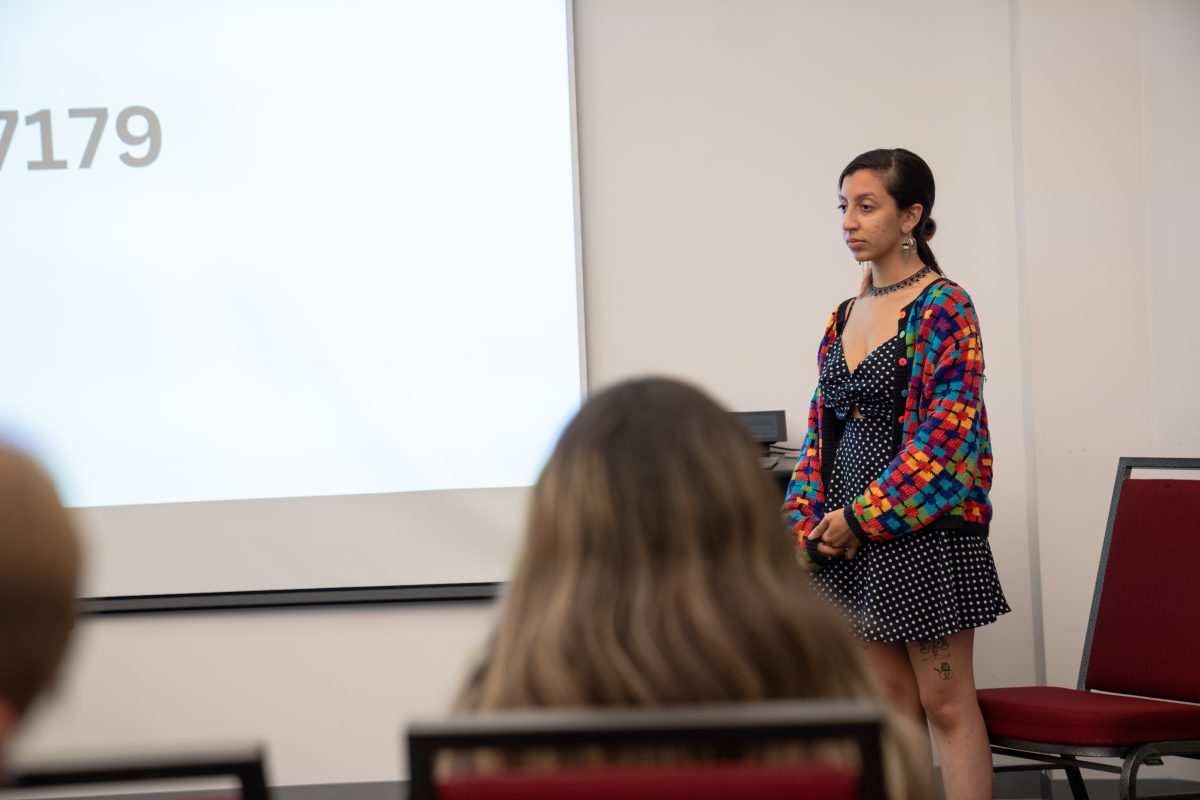CSUN’s Students for Justice in Palestine chapter held a general meeting with the Lebanese Student Association to brief their members on the current situation in Palestine and to fundraise for the Middle East Children’s Alliance.
Students started with icebreakers to introduce themselves and let people know why they were at the general meeting.
“I hate imperialism, I hate colonialism, and I hate death. That’s why I’m here today,” SJP board member Robert Avila said.
SJP and LSA chose to fundraise for MECA because they have an emergency fund for Gaza. According to the Director General of the Gaza Health Ministry, Dr. Mehdat Abbas, hospitals are low on power and supplies. This lack of resources is due to the blockade and constant bombardment by the Israeli military.
As these hospitals are on the verge of collapse, donations have been gathered for Middle East Children’s Alliance to provide the necessary supplies and resources to keep them running. According to MECA, the fund for Gaza will provide food parcels, water, hygiene supplies, medical aid and psychosocial support. The psychosocial support involves training 48 staff and volunteers to help support traumatized children. While the staff and volunteers receive training, MECA started the Musical Caravan Project to provide outdoor concerts for local children.
According to a report by the United Nations, the death toll in Gaza has reached 10,569 with 26,475 injured. Women and children make up 60%-70% of the deaths in Gaza, according to Gaza’s Ministry of Health. Israeli deaths have amounted to 1,400, with 5,431 injured – most of which were in the attacks by Hamas on Oct. 7. About 212 Israeli and foreign nationals are being held captive. In Gaza, the UN estimates that 1.58 million people have been displaced.
Founder and president of SJP Marjina Haque also spoke at the meeting.
“We’ve seen the complete collapse of the medical system of Gaza, and it’s not by way of accident. It’s very intentional – taxed from the Zionist occupation, be it through bombings, be it through blockading medical resources,” Haque said.
SJP had not been active since 2014, but when Haque transferred from community college last year, she decided to restart CSUN’s SJP chapter. This renewal was met with resistance from pro-Israeli groups on campus.
At an SJP tabling earlier this year, Haque said some students took pictures of her and a friend and submitted them to Stop Antisemitism, a “watchdog organization dedicated to exposing groups and individuals that espouse incitement towards the Jewish people and state and engage in antisemitic behaviors.”
Haque said she received messages on Instagram after the tabling event, threatening to get her and her friend expelled.
Pro-Israel groups have labeled SJP as an extremist organization. Some U.S. politicians have also been vocal against the group. Florida governor Ron DeSantis and Florida’s university system ordered colleges in the state to shut down SJP chapters due to its “harmful support for terrorist groups.” Florida is the first state to ban the group.
Haque and Avila are aware of the risks associated with being a part of SJP, so they outlined the work of Palestine Legal during their presentation.
Palestine Legal provides “legal advice, Know Your Rights training [programs], advocacy and litigation support to college students, grassroots activists and affected communities who stand for justice in Palestine.”
Haque said they were anticipating backlash but are not backing down.
“There’s our principles we stick to, there’s our truth we stick to. There’s the knowledge that we are here for something bigger than ourselves. We know that liberation and the right of return are inevitable, but our goal is to happen within our lifetimes,” Haque said.
Haque also outlined the three broad rights that SJP and the leadership of Palestinian society are demanding. They are the following:
The right of Palestinians in the West Bank (including East Jerusalem) and Gaza Strip to not live under occupation.
The right of Palestinians inside Israel to not live under a system of discriminatory laws.
The right of Palestinian refugees to return to their homes.
In terms of the work they do, Haque says SJP is focusing on the narrative of Palestinians and not Israeli settlers.
“We’re not thinking about the settler,” Haque said. “The settler lives a life of ease and contentment and comfort at the expense of the oppression of native Palestinians.”






